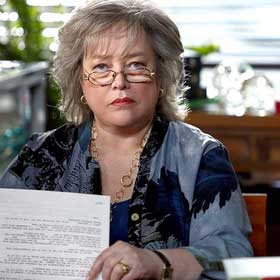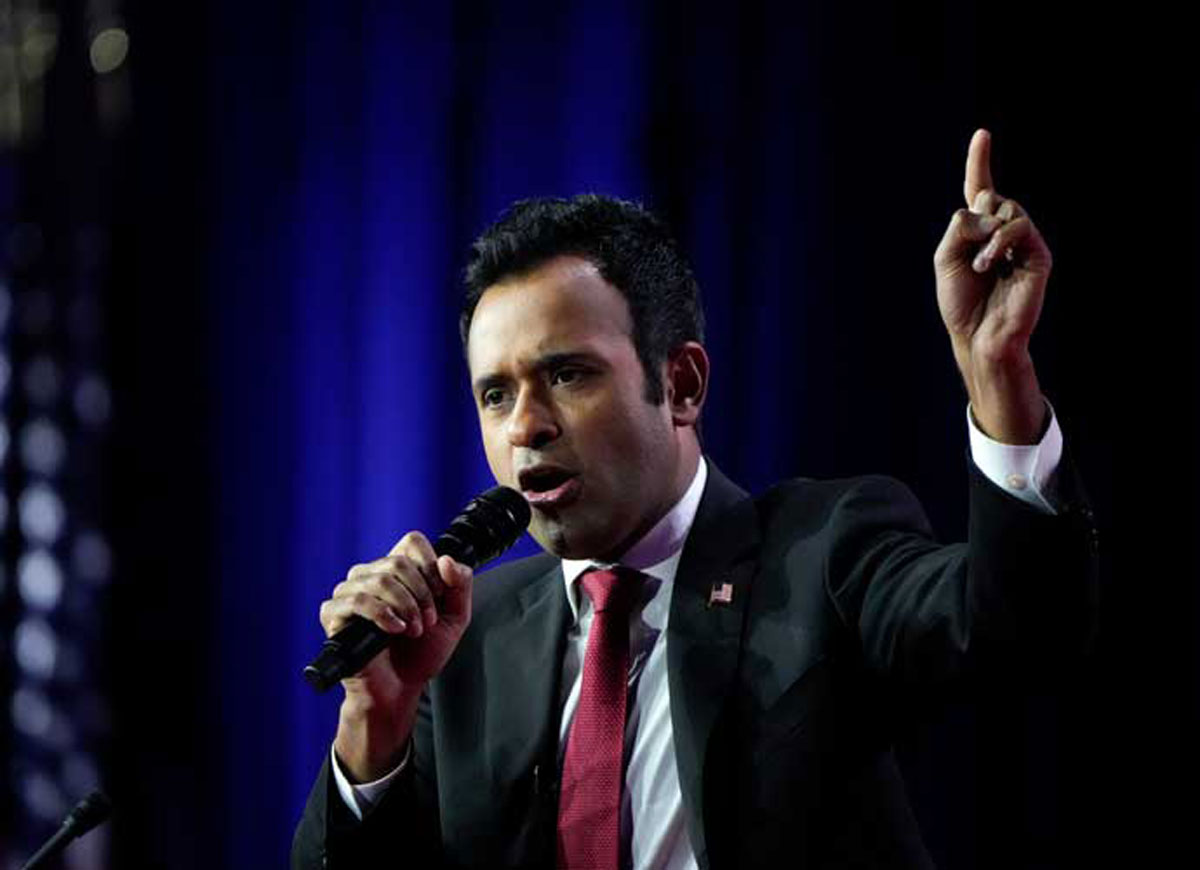Harry's Law

3.5/5
“Things rarely happen for a reason; most things in life make no sense” is the spoken philosophy of cynical patent lawyer turned criminal crusader Harriet Korn (Kathy Bates) in David E. Kelly’s new NBC drama, Harry’s Law. While the more discriminating viewer might shy away from lifting moral lessons from an hour-long television drama, Bates is the kind of actress who imbues such lines, despite their triteness, with just the right amount of irony to make them not only palatable, but even kind of fun. While imminently adaptable to television, Bates is a bit too polished for the rest of the cast, whose collective tendency to overact seems all the more panicked next to her relaxed, comfortable style and understated delivery.
Kelly, teaming up again with director Bill D’Elia (Boston Legal), brings his usual flare to this new dramedy, demonstrating an appreciation for the absurd with an irreverence that’s conducive to satire. His style is a little more sophisticated than it was back in the haphazard Ally McBeal days, though it’s still often unclear what’s supposed to be taken seriously and what is supposed to be a joke. Even once you figure it out, you’re expected to vacillate so rapidly between sincerity and cynicism that the effectiveness of both is undermined. This leads to emotional vertigo and the ever-fatal compassion fatigue.
Luckily, the show saves itself with sheer charm. Kelly characteristically throws little nuggets of originality into a primarily cliché premise, following the burned out Harriet, who describes her life’s pursuit as “boring as a big bowl of steaming dog sh—.” The very day of her eureka moment finds her walking around an unsavory neighborhood, where a suicidal man jumps out of a six-story window and lands square on her head, knocking her unconscious, but leaving her ultimately unharmed.
Harriet construes this bizarre mishap as a further sign that she should embark on a whole new life, abandoning her old “dull” career and starting her own practice in the same urban neighborhood that served as the site of her epiphany. It just so happens that a good lawyer is sorely needed in her chosen location -– but a criminal lawyer, not a patent one. The place is teeming with locals who need representation, and because Harriet’s new practice doubles as a high end shoe store, courtesy of a salesperson who left her goods behind after being evicted, Harriet can afford to serve her community pro-bono, and she’s motivated by a newfound sense of purpose, which she considers payment enough. Luckily, she has an idealistic, sycophantic junior associate and a bubbly blonde paralegal to share her perspective, and the three settle into the cozy new “office” like the happiest of dysfunctional families.
Though Harry’s Law may not be the most profound, realistic, or substantive show on NBC these days, it has two things going for it – the expertise of Bates and the fact that there’s nothing else on television quite like it. This is not just a heartwarming law drama in which the bad guys with hearts of gold get off with slaps on their wrists, but a comedy in which lawyers break out into celebrity impressions in the middle of a courtroom and people fall out of the sky. Harriet is not just a dissatisfied woman finding new meaning in her life, but a foul-mouthed, jaded curmudgeon who intimidates common criminals trying to shake her down, uses her bumbling inexperience in criminal law to manipulate juries, and tells people exactly what she thinks of them. Oh, and she carries a gun.
RELATED ARTICLES
Get the most-revealing celebrity conversations with the uInterview podcast!







Leave a comment